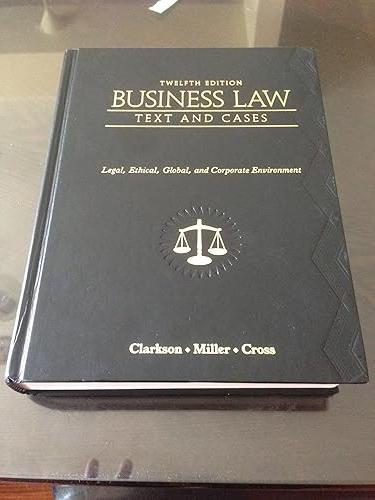Allan and [Aslan] Koraev both owned units in the Boardwalk on the Parkway Condominiums. Allans unit was
Question:
Allan and [Aslan] Koraev both owned units in the Boardwalk on the Parkway Condominiums.
Allan’s unit was directly beneath Koraev’s.* * * Between March 2005 and July 2007, Allan’s unit suffered eight incidents of water and sewage incursion as a result of plumbing problems and misuse of appliances in Koraev’s unit. Allan sued Koraev
[and Ekaterina Nersesova, who was the property manager for Koraev’s unit] on a variety of causes of action, including * * * breach of contract. The jury found for Allan on her claims for breach of contract against Koraev * * * . Koraev moved for judgment notwithstanding the verdict, asserting Allan failed to prove as a matter of law the existence of a contract between her and Koraev.
The trial court granted the motion[.]
* * * *
* * * Allan contends the trial court erred by rendering judgment notwithstanding the verdict on her breach of contract claim.
* * * *
Allan asserted that the [governing documents of the condominium]
formed a contract between each unit owner and the Owners’
Association. [The governing documents]
* * * required Koraev to comply with the terms of the governing documents, and the Bylaws and Rules and Regulations made Koraev liable for any damage he caused to another unit.
* * * *
* * * Because Allan was not in privity of contract with Koraev, she has standing to bring a breach of contract claim only if she demonstrated she was a third-party beneficiary.
A third party, such as Allan, may sue to enforce a contract as a third-party beneficiary only if the contracting parties entered into the contract directly and primarily for the third party’s benefit.
* * * There are three types of third-party beneficiaries—donee, creditor, and incidental. * * * A party is a creditor beneficiary if no intent to make a gift appears from the contract, but performance will satisfy an actual or asserted duty of the promisee to the beneficiary, such as an indebtedness, contractual obligation, or other legally enforceable commitment to the third party, and the promisee must intend that the beneficiary will have the right to enforce the contract.
[Emphasis added.]
Questions:-
1. Why did the court use the term creditor benefi ciary to describe Allan?
2. Suppose that Allan had sued Koraev for negligence. Would she have been successful? Discuss your answer.
Step by Step Answer:

Business Law Text And Cases Legal Ethical Global And Corporate Environment
ISBN: 9780538470827
12th Edition
Authors: Kenneth W. Clarkson, Roger LeRoy Miller, Frank B. Cross





